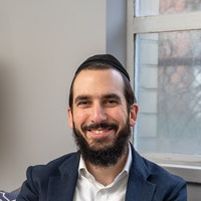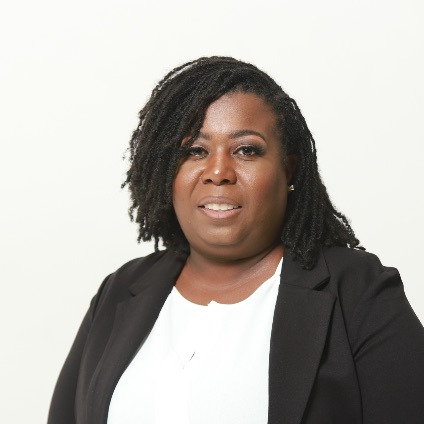Finding Support for Sex Addiction in Jacksonville
Living with sex addiction can feel overwhelming and isolating, but you’re not alone and support is within reach. MiResource makes it simple to connect with therapists in Jacksonville, whether you prefer online sessions or in-person care, so you can find help that fits your life. You’re in the right place—trust MiResource to guide you to compassionate, confidential support.
An Overview of Sex Addiction
Sex addiction involves compulsive sexual thoughts or behaviors that feel out of control and can strain relationships, work, and emotional well‑being. If you’re in Jacksonville and struggling with these patterns, know that it’s a treatable condition and you’re not alone. Evidence-based therapy can help you understand triggers, set healthy boundaries, and build a sustainable recovery plan with local support.
Defining Sex Addiction
Sex addiction, also called compulsive sexual behavior, means sexual thoughts, urges, or activities feel hard to control and continue even when they cause problems in your life in Jacksonville. Hallmark signs include constant preoccupation with sex, needing more time or intensity to feel satisfied, failed attempts to cut back, using sex to cope with stress, secrecy, and continuing despite relationship, work, or health issues. Day to day, it can lead to missed deadlines, strained trust with partners, risky encounters, financial strain from porn or escorts, and hours lost online or arranging hookups. Authoritative sources such as the World Health Organization’s description of Compulsive Sexual Behavior Disorder (ICD-11) and the American Psychiatric Association’s guidance on addiction features help frame this condition in clear clinical terms. If you’re considering support, you can explore the broader
Sex Addiction
therapy resources on MiResource.
Benefits of Therapy for Sex Addiction
Therapy for sex addiction helps you reduce compulsive urges, regain control, and rebuild hope, including access to compassionate care in Jacksonville. Cognitive Behavioral Therapy (CBT) teaches practical coping skills and relapse-prevention strategies that decrease triggers and impulsive behaviors. Dialectical Behavior Therapy (DBT) builds emotional regulation and distress-tolerance skills so you can manage cravings and avoid risky situations. Motivational Interviewing (MI) strengthens commitment to change and turns goals into sustained action. Couples or group therapy improves communication, repairs trust, and provides accountability and support, helping you restore relationships and maintain long-term recovery.
The Therapy Journey – What to Expect
Starting therapy for Sex Addiction in Jacksonville typically begins with a compassionate initial assessment to understand your history, triggers, strengths, and priorities. Together, you and your therapist will set clear, realistic goals—such as reducing compulsive behaviors, improving coping skills, and rebuilding trust—so progress feels measurable and meaningful. Ongoing sessions are collaborative and paced to your comfort, with regular check-ins to adjust the plan as your needs evolve. Treatment often integrates evidence-based modalities like Cognitive Behavioral Therapy (
CBT
), Acceptance and Commitment Therapy (ACT), Dialectical Behavior Therapy (
DBT
),
Motivational Interviewing
, and relapse-prevention strategies, and may include couples work when relationships are affected. Throughout, care is personalized, supportive, and focused on practical tools you can use between sessions, helping you build confidence and sustainable change.
Tips for Choosing the Right Therapist in Jacksonville
Go to MiResource, set your location to Jacksonville, and select Sex Addiction as the condition to see matching providers. Use the filters to choose therapy approaches that fit your needs (e.g., CBT, 12‑step–informed, trauma‑focused, couples therapy). Narrow results by your
insurance
plan or self-pay budget, preferred languages, and availability (next openings, evenings, or weekends). Refine further by Jacksonville neighborhoods like Riverside, San Marco, Southside, or the Beaches, and pick in‑person or telehealth. Compare profiles, read bios, and note specialties to find a personal fit that feels right. Start exploring the directory now and take the next step toward support.
Why a Local Jacksonville Therapist Can Make a Difference
Jacksonville’s size and diversity shape how people experience and recover from sex addiction. From faith-centered communities in Mandarin and the Westside to the nightlife around San Marco, Riverside/Avondale, and the Beaches, local culture can influence triggers, secrecy, and support networks. Military life connected to NAS Jacksonville and Mayport can add stressors like deployments and shift work that a local therapist understands. Providers rooted here can help navigate privacy concerns in tight-knit church or school communities, and integrate recovery with local values, family life, and community expectations.
Getting to in-person care in Jacksonville often means planning around I-95, I-295, and I-10 traffic, bridge backups (Main Street, Matthews, Dames Point), and Jaguars game days near EverBank Stadium. Many clients come from Arlington, Northside, Southside, or the Beaches, using
JTA buses
or First Coast Flyer BRT, with the Skyway easing downtown access. Afternoon thunderstorms, heat, and hurricane season can disrupt routines; having a nearby therapist offers flexibility for same-day rescheduling and crisis check-ins. Meeting in person can also support boundary-setting around local triggers—beach bars, strip clubs, or downtown events—while building healthy routines at recognizable landmarks like the Riverwalk or Jacksonville Arboretum. Local clinicians can coordinate with employers, churches, and partners to create practical relapse-prevention plans that fit Jacksonville’s commute and lifestyle patterns.
Helpful resources include
Sex Addicts Anonymous
and
Sex and Love Addicts Anonymous
meetings in Jacksonville, plus
SA
and
S-Anon
for partners. For clinical care and referrals, see
Mental Health Resource Center
,
Baptist
Behavioral Health,
UF Health
Psychiatry and Emergency,
Ascension St. Vincent’s Emergency
, and
UF Health North ER
. Use
SAMHSA’s
treatment locator for specialists and United Way
211
for local navigation. In a crisis, call or text 988, dial 911 for immediate danger, or go to the nearest emergency department. For additional support, the SAMHSA National Helpline is 1-800-662-HELP (4357).
Sex Addiction Therapy in Jacksonville: FAQ Guide
When should I consider seeking help for Sex Addiction?
Consider reaching out when sexual thoughts or behaviors feel out of control, are getting worse, or keep returning despite your efforts to stop. If they interfere with school or work, strain relationships, lead to secrecy or avoidance, or cause shame, anxiety, or depression, it’s a good time to seek support. Get help immediately if you have safety concerns, including thoughts of self-harm or putting yourself or others at risk. Early support can make a big difference, and you can access in-person or virtual sex addiction therapy in Jacksonville.
What if I don’t click with my therapist right away?
It’s common not to click with the first therapist you meet, and finding the right fit matters—research shows a strong therapeutic alliance leads to better outcomes for Sex Addiction. You can switch at any time and use MiResource to compare therapists’ approaches, insurance acceptance, and real-time availability in Jacksonville.
Does online therapy really work for Sex Addiction?
Yes—online therapy can be effective for sex addiction, offering privacy, flexible scheduling, and access to specialized clinicians you might not find nearby. Many people benefit from structured approaches like CBT or relapse-prevention work via video, plus secure messaging and homework between sessions. In-person therapy in Jacksonville may be preferred if you need higher levels of care (e.g., intensive outpatient or group therapy), have safety concerns or co-occurring issues that require closer monitoring, or simply feel more accountable meeting face-to-face. Some clients also value local, in-room support for navigating triggers in their daily Jacksonville environment and building in-person support networks.
How do I prepare for my first session?
Seeking support through Sex Addiction therapy in Jacksonville is a strong step—here’s how to get ready for your first session:
Steps to prepare
- Clarify your goals: jot down what you hope will change (e.g., reducing compulsive behaviors, rebuilding trust, improving coping skills).
- Note your history: major life events, past treatments, triggers, patterns, and any co-occurring concerns (
anxiety
,
depression
,
substance use
).
- Track recent behaviors: approximate frequency, urges, situations, and consequences—no need for details beyond what feels safe to share.
- Identify supports and risks: who’s in your corner, current stressors, and any immediate safety concerns.
- Plan logistics: confirm time, location/telehealth link, payment/insurance, and arrive a few minutes early.
- Set boundaries: decide what you’re comfortable sharing at first and any topics you prefer to approach slowly.
- Practice self-care: schedule something calming before/after the session and plan a safe space to decompress.
What to bring
- Photo ID, insurance details, and payment method
- A list of medications and any prior mental health records (if available)
- Your written notes on goals, history, triggers, and questions
- A journal or phone for notes after the session
- Water and anything that helps you feel grounded (e.g., stress ball)
What to expect
- A compassionate, nonjudgmental conversation focused on your goals and safety
- Confidentiality overview and informed consent
- Screening for related concerns (mood, anxiety, trauma, substance use)
- A collaborative plan for next steps, frequency of sessions, and initial coping strategies
- Optional discussion of involving partners/family and resources like support groups
Questions to ask
- How do you assess and treat sex addiction/compulsive sexual behavior?
- What approaches do you use (e.g., CBT, ACT, trauma-informed care, 12-step–adjacent support), and what does a typical session look like?
- How do we set goals and measure progress?
- What coping tools can I use between sessions for urges and triggers?
- How do you handle confidentiality, especially around partners or legal concerns?
- What is the expected length of treatment and options for higher or lower levels of care if needed?
Can therapy truly help with Sex Addiction?
Yes—research shows that evidence-based therapies like cognitive behavioral therapy, motivational interviewing, acceptance and commitment therapy, and couples work can significantly reduce compulsive sexual behaviors and the distress they cause. In Jacksonville, therapists use these approaches to help you build impulse control, manage triggers, reduce shame, and strengthen relationships. Many people also benefit from group support and relapse-prevention planning to maintain gains. Consistency matters: regular sessions, honest participation, and practicing skills between visits are key to lasting change.













